Nazi paraphernalia on the auction block in Stonewall
Read this article for free:
or
Already have an account? Log in here »
To continue reading, please subscribe:
Monthly Digital Subscription
$0 for the first 4 weeks*
- Enjoy unlimited reading on winnipegfreepress.com
- Read the E-Edition, our digital replica newspaper
- Access News Break, our award-winning app
- Play interactive puzzles
*No charge for 4 weeks then price increases to the regular rate of $19.00 plus GST every four weeks. Offer available to new and qualified returning subscribers only. Cancel any time.
Monthly Digital Subscription
$4.75/week*
- Enjoy unlimited reading on winnipegfreepress.com
- Read the E-Edition, our digital replica newspaper
- Access News Break, our award-winning app
- Play interactive puzzles
*Billed as $19 plus GST every four weeks. Cancel any time.
To continue reading, please subscribe:
Add Free Press access to your Brandon Sun subscription for only an additional
$1 for the first 4 weeks*
*Your next subscription payment will increase by $1.00 and you will be charged $16.99 plus GST for four weeks. After four weeks, your payment will increase to $23.99 plus GST every four weeks.
Read unlimited articles for free today:
or
Already have an account? Log in here »
Hey there, time traveller!
This article was published 27/02/2020 (2120 days ago), so information in it may no longer be current.
A Hitler youth knife with a swastika on its handle. An application form for the Schutzstaffel (SS), a Nazi organization responsible for carrying out the Final Solution, signed the day after the Second World War began. A 1937 book depicting the “perfect Aryan town.”
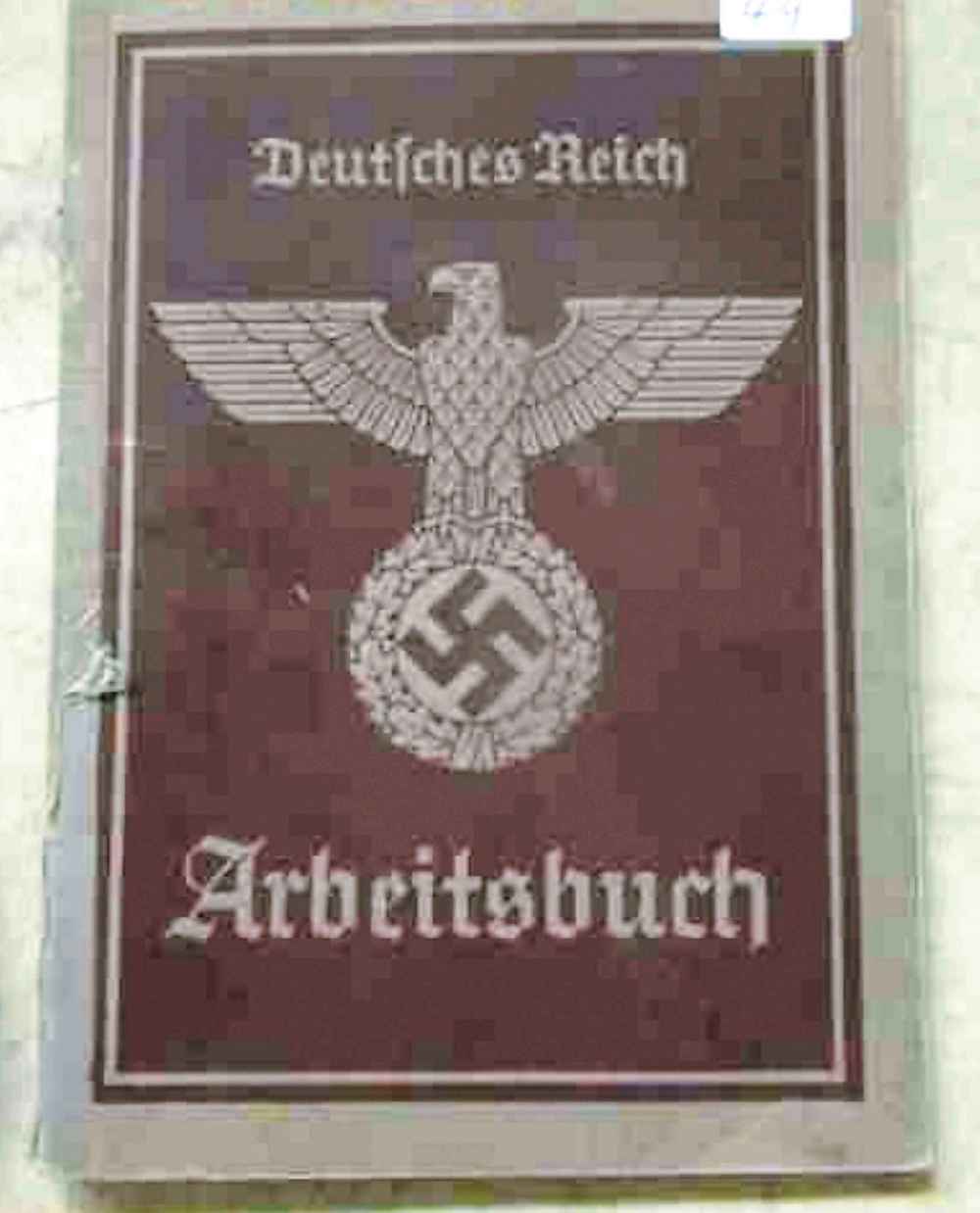
These are among the items up for sale in Stonewall this weekend at McSherry’s Auction House, a spot frequented by collectors of many stripes. Also for sale Saturday will be typewriters, lamps, and snow shoes, but the 80-item lot of Nazi paraphernalia stands out in particular.
Stuart McSherry, who runs about 80 auctions per year, didn’t necessarily understand the context of the lot at first. He signed an agreement with a seller looking to let go of a few pieces from his collection of militaria. The collector gave a few brief descriptions of the items — which also include a photograph of Nazi war criminal Julius Streicher, the publisher of the wartime Der Stürmer anti-Semitic newspaper and an executee following the trials at Nuremberg in 1946.
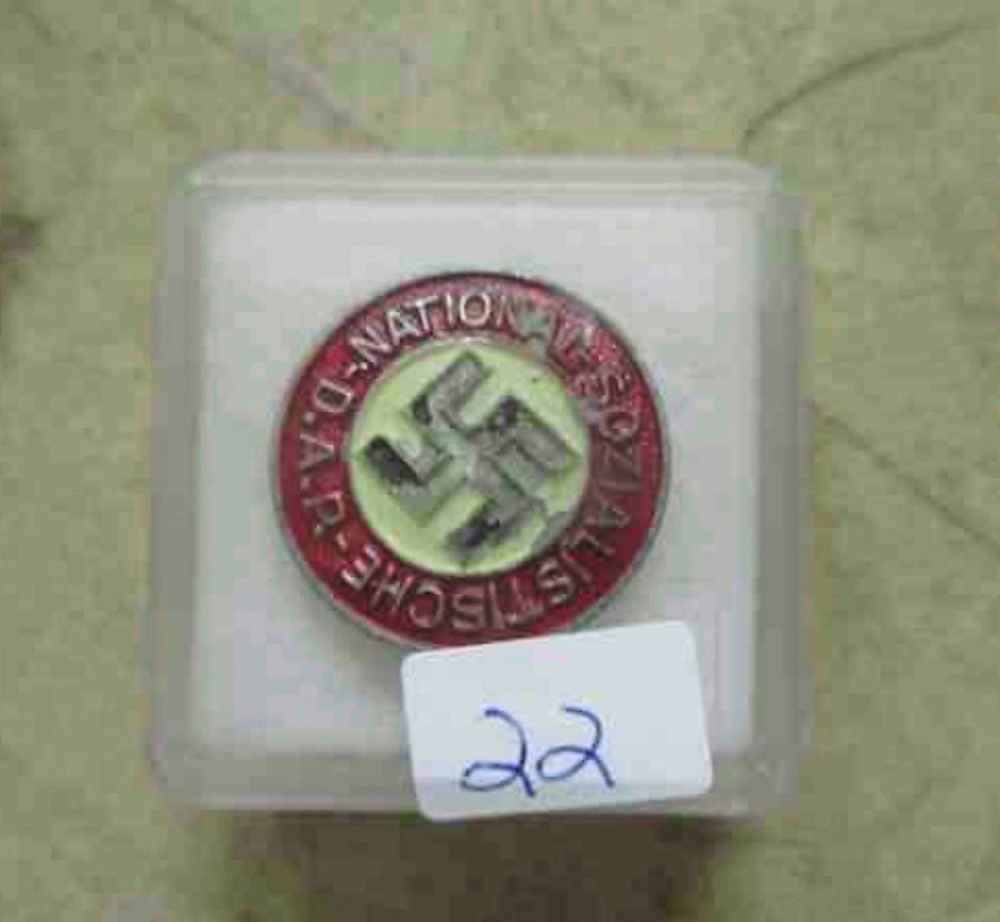
“The product is just a product to me,” McSherry initially told the Free Press. “I never stopped to think about it.”
But in a time of emboldened anti-Semitism — mass murder at a synagogue in Pittsburgh, a fatal shooting at a Jewish supermarket in New Jersey, and a former Canadian reservist from Manitoba standing trial for his alleged involvement in a neo-Nazi organization — is the product more than a widget to be sold?
Since the end of the Second World War, Nazi memorabilia has become a common collectable. Some items popping up for sale were brought back by returning soldiers, to remember what they’ve defeated; the seller in Stonewall is the son of a Second World War soldier, McSherry said.
Over time, certain objects started commanding enormous prices: Hitler’s personalized telephone, scoured from his Berlin bunker, nabbed $243,000 in 2017; prices for Nazi paraphernalia have gone up recently, said Terry Kovel, an American antiques expert.
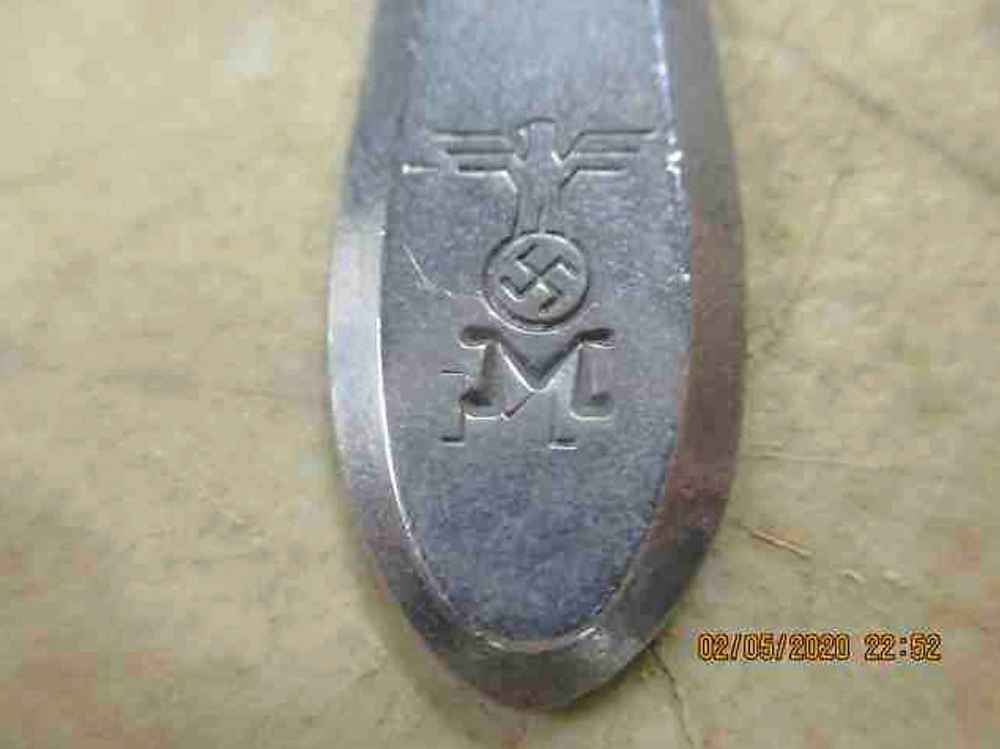
Sometimes, buyers of these super-rare items are Jewish, as was the case with the $245,000 purchase of Auschwitz doctor Josef Mengele’s diaries by a modern Orthodox doctor, who intended to loan them to Yad Vashem, the Holocaust memorial museum in Israel. Other times, a historical society or museum makes the winning bid. But by definition of an open auction, anyone can take a lot home.
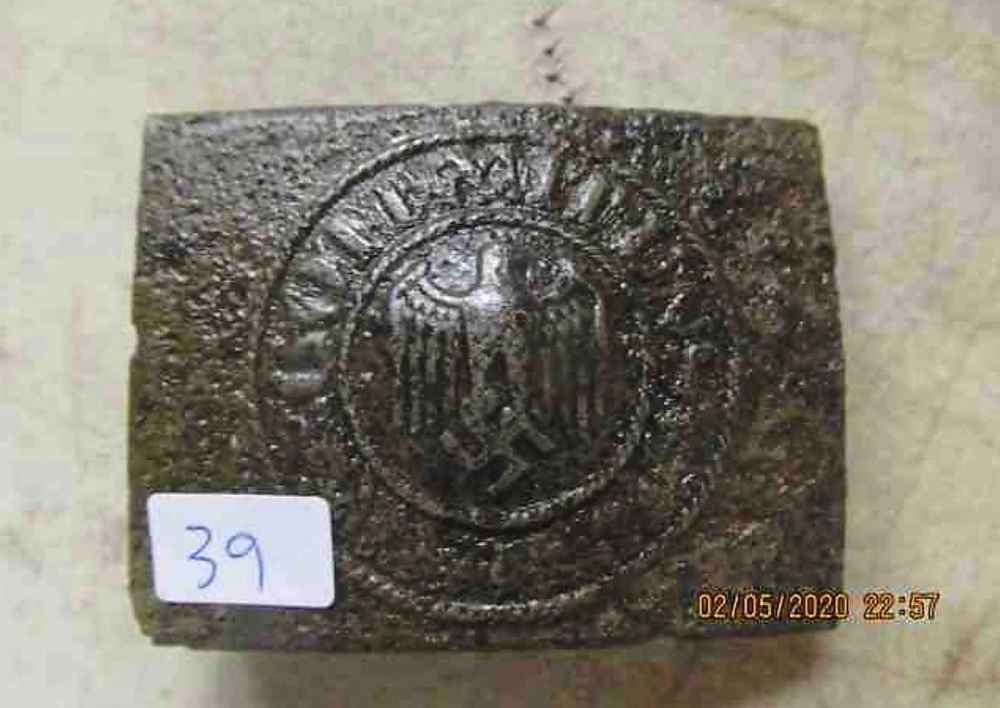
“I think there certainly is a risk when material like this is put up for public sale,” said Jeremy Maron, the curator of Holocaust and genocide content at the Canadian Museum for Human Rights. “Historians could bid on this, but so could extremists building up a shrine to the Nazis or for the use of spreading extremist ideology.”
Belle Jarniewski, the director of the Freeman Family Foundation Holocaust Education Centre, called the auction lot “very worrisome.”
Any of the items have the potential to be used to spread hateful rhetoric or to distort the Holocaust’s impact, she said
In both the education centre and the CMHR, display items are accompanied by explanations and educational material, Jarniewski said; it can’t be assumed the same context will be available in someone’s living room or basement.
The Friends of Simon Wiesenthal Centre, based in Toronto, has called for the immediate removal of the memorabilia from the auction.
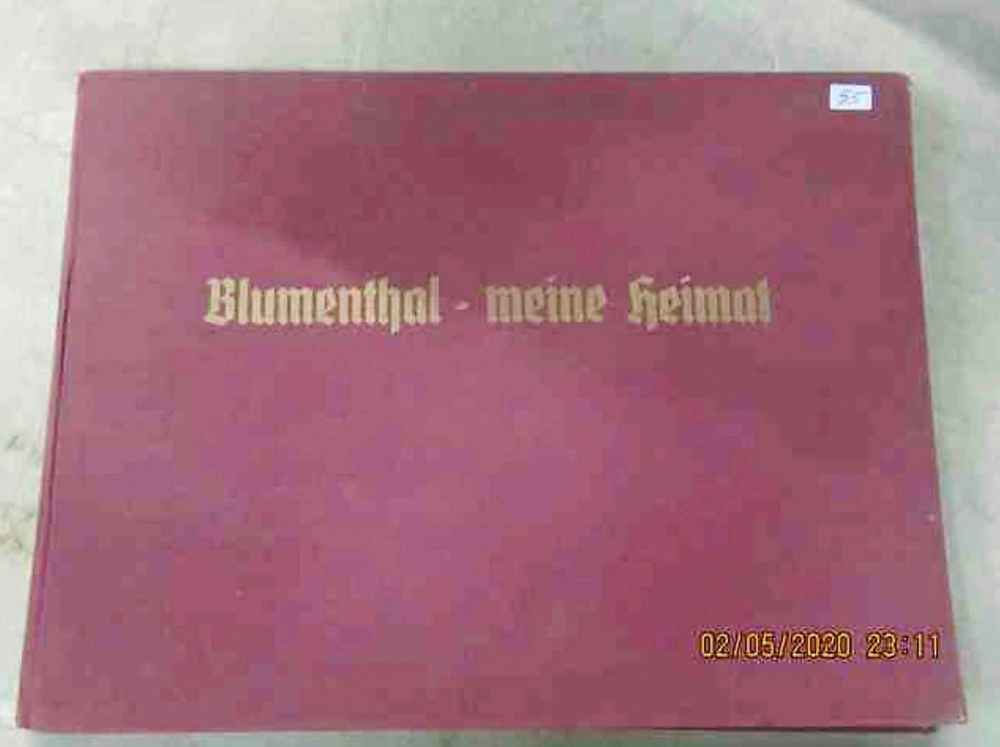
“These items are associated with the Nazi regime that murdered 6 million Jewish people and millions more,” the centre’s president Avi Benlolo said Thursday. “The swastika remains a symbol of hate that is often used today by neo-Nazis to spread hate propaganda.”
Cara Zwibel, director of the Canadian Civil Liberties Association’s fundamental freedoms program, said despite any opposition, it’s most likely not illegal to sell the paraphernalia in Canada.
Kjell Anderson, the director of the University of Manitoba’s master of human rights program, said Canadian hate speech law boils down to intent, pointing to sections 318, 319 and 320 of the Criminal Code. “There’s nothing illegal about having an auction like that per se,” he said.
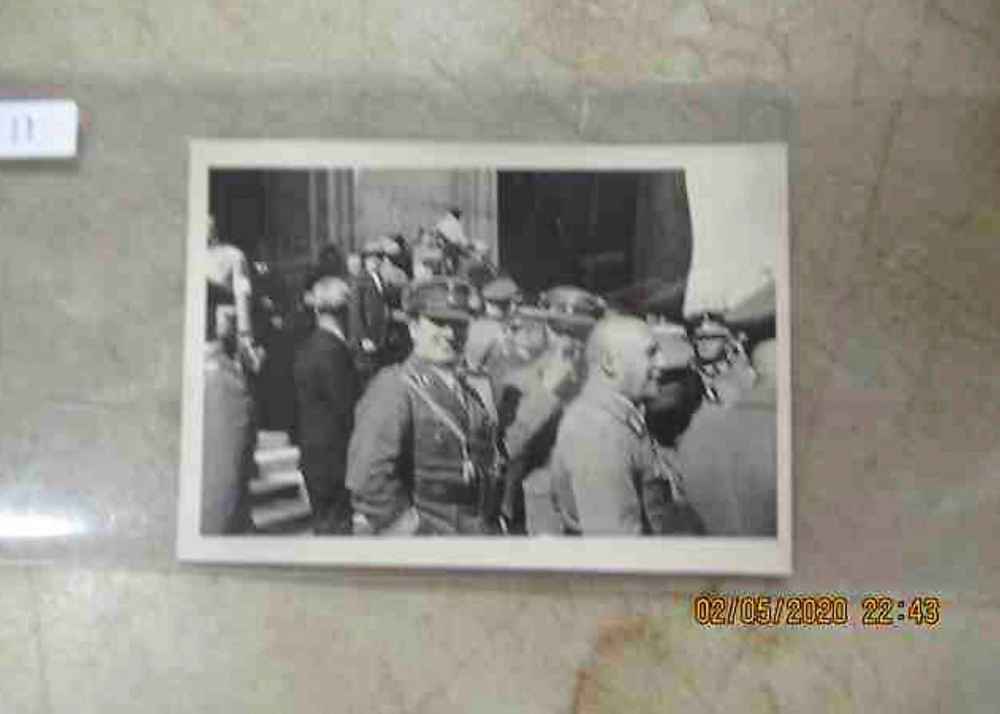
Corey Shefman, a lawyer with OKT LLP in Ontario who specializes in aboriginal rights and human rights, said the questions surrounding the sale of the paraphernalia aren’t so much legal as logical and ethical.
“The question is who is selling them and who is buying them,” he said.
The same question is dogging sellers much larger than McSherry. Earlier this week, the Auschwitz Memorial and the Holocaust Educational Trust called on Amazon to stop selling books by Streicher, including the Poisoned Mushroom, a parable depicting Jewish people as evil; the book has since been removed.
At first, McSherry said he hadn’t considered what these items represented. “I’m just selling a part of history,” he said. “Have we sold Nazi stuff before? A little here, a little there.”
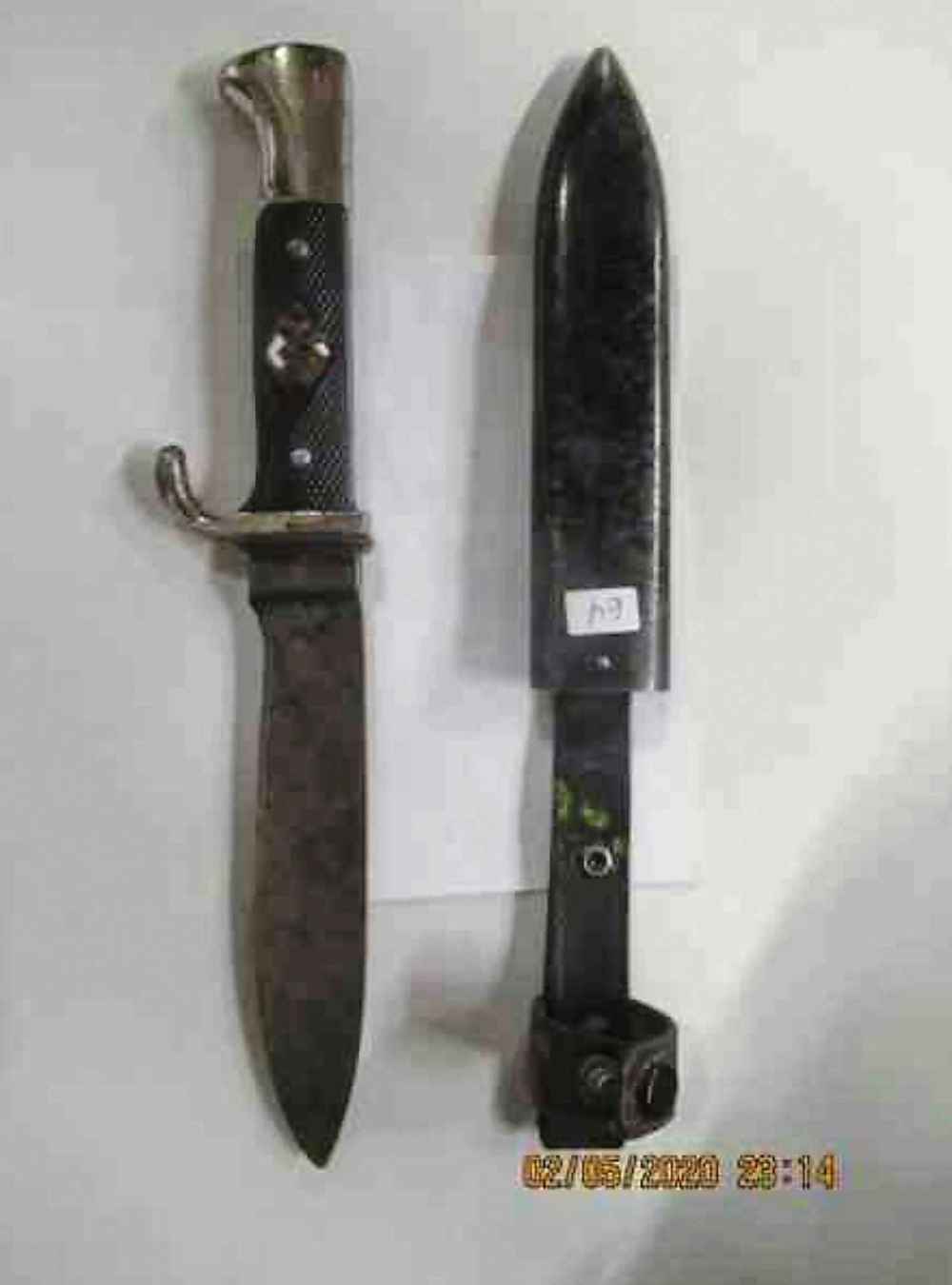
But once given more context surrounding the items up for sale, McSherry says he reached out to the seller to see whether he’d remove from the lot the book depicting a “perfect Aryan town.” And when he learned more about Streicher, who appears in a photograph for sale, he said he’d discuss removing it as well.
“The involvement of the people (these items) affect might have been overlooked,” he admitted.
McSherry said the auction has been scheduled, and he doesn’t plan on cancelling it due to an obligation to the seller, who hadn’t gotten back with a response to McSherry at press time. But when asked whether he’d think twice about auctioning paraphernalia such as the items listed, McSherry said he would.
“I’d strongly consider in the future not selling,” he said.
ben.waldman@freepress.mb.ca

Ben Waldman covers a little bit of everything for the Free Press.
Our newsroom depends on a growing audience of readers to power our journalism. If you are not a paid reader, please consider becoming a subscriber.
Our newsroom depends on its audience of readers to power our journalism. Thank you for your support.
History
Updated on Friday, February 28, 2020 9:38 AM CST: Corrects spelling
Updated on Friday, February 28, 2020 12:01 PM CST: Corrects spelling error.









